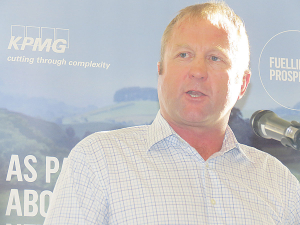The biggest threat to the primary sector – right now – is if COVID-19 gets into a processing plant, says Mike Petersen, former special trade envoy and Beef + Lamb chair.
“That is not just in the meat industry; that is in the horticulture sector and the dairy sector,” he told Rural News.
“There is a big risk. We are at peak picking season now with apples and kiwifruit.”
Petersen says the sector has to get it right otherwise it will lose the privilege of food production being deemed an essential service.
“Our number one priority is feeding New Zealanders first and foremost and then obviously exporting our other product to the world,” he adds.
“It is the privilege we have been given, but also a huge responsibility and we have got to make sure we have got it right.
“We shouldn’t take this lightly. We should make sure we are doing everything possible to ensure our systems and processes comply with the physical distancing rules.”











